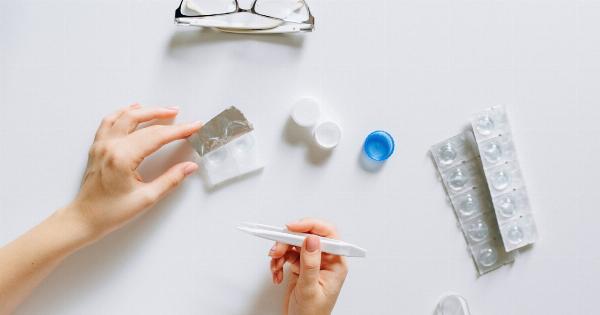Tattoos have become increasingly popular over the years, with more and more people getting inked as a form of self-expression.
While getting a tattoo can be an exciting and meaningful experience, it’s important to remember that proper aftercare is crucial to maintain the longevity and vibrancy of your tattoo. One important aspect of tattoo aftercare is the use of sunscreen. In this article, we will explore the reasons why you should always wear sunscreen on your tattoos.
1. Protects from Fading
Exposure to the sun’s harmful UV rays can cause your tattoo to fade over time. The ultraviolet rays can break down the ink particles and cause them to disperse, resulting in a dull and faded appearance.
By wearing sunscreen, you create a barrier between your tattoo and the sun, reducing the chances of fading.
2. Prevents Sunburn
When your tattoo is exposed to the sun without any protection, it becomes more susceptible to sunburn. Sunburn can be not only uncomfortable but also detrimental to the healing process of a new tattoo.
Applying sunscreen to your tattoo helps prevent sunburn, allowing it to heal properly and maintain its vibrancy.
3. Reduces Skin Cancer Risk
While tattoos themselves do not increase the risk of skin cancer, unprotected sun exposure can. The sun’s UV rays are a known carcinogen and can lead to the development of skin cancer.
By applying sunscreen to your tattoo, you not only protect its longevity but also reduce the risk of developing skin cancer on the tattooed area.
4. Preserves Tattoo Clarity
Over time, exposure to the sun can cause the lines and details of your tattoo to blur, making it less sharp and clear.
Sunscreen acts as a shield, preventing the harmful UV rays from causing damage to the tattoo and preserving its clarity and sharpness.
5. Maintains Vibrant Colors
Tattoos are known for their vibrant and eye-catching colors. However, these colors can fade when exposed to sunlight without protection. Sunscreen helps prevent the colors from fading and keeps your tattoo looking vibrant for years to come.
6. Allows for Enjoying Outdoor Activities
If you love spending time outdoors, whether it’s swimming, hiking, or simply basking in the sun, wearing sunscreen on your tattoo allows you to engage in these activities without worrying about damaging your ink.
It provides peace of mind, knowing that your tattoo is protected from the sun’s harmful rays.
7. Suitable for All Skin Types
No matter your skin type, wearing sunscreen is important for everyone with a tattoo. Whether you have fair, medium, or dark skin, regular sun exposure can still cause damage to your tattoo.
Choosing a sunscreen with broad-spectrum protection and an appropriate SPF will ensure your tattoo is shielded from harmful UV rays.
8. Prevents Premature Aging
The sun’s rays can cause premature aging of the skin, leading to wrinkles, fine lines, and sagging. By applying sunscreen on your tattoo, you not only protect the tattooed area but also promote overall skin health.
Sunscreen helps to slow down the aging process by blocking the harmful UVA and UVB rays.
9. Enhances Longevity
By incorporating sunscreen into your daily skincare routine, you increase the longevity of your tattoo. A well-maintained and protected tattoo will look vibrant and sharp for many years, allowing you to enjoy and proudly display your ink.
10. Provides Peace of Mind
Knowing that you have taken the necessary steps to protect your tattoo from the sun’s damaging effects brings peace of mind. By consistently wearing sunscreen on your tattoo, you can enjoy the beautiful artwork without stress or worry.






























